Mohammad was talking to his friends on the side of a road in his hometown in south Iran when the car crash happened around midnight.
“Two cars had an accident and one of them hit me on my left side, and my head as well,” the 33-year-old told SBS News.
“I didn’t know what happened, I opened my eyes and I was at the hospital.”
The crash happened more than six years ago. His doctor at the time said he didn’t need surgery and his knee was left untreated, ending his hopes of pursuing a career in football.
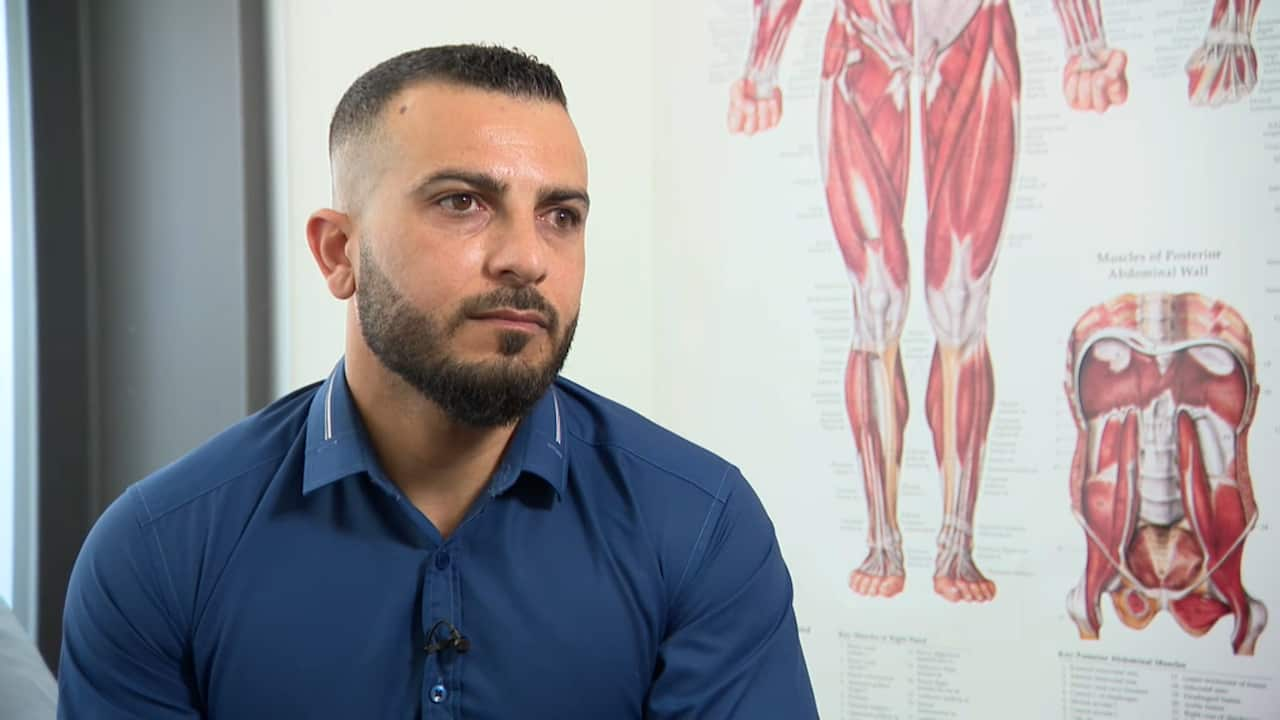
The political situation in his home country later forced Mohammad to flee and seek asylum in Australia, and after some time in detention, he was referred to Sydney-based sports physician Dr John Best to get treatment on his knee.
“He always laughs at me … he’s a very nice person, he has a very soft heart ... a 100 per cent good person to me,” Mohammad said.
At the time, Mohammad was not the regular type of patient Dr Best was seeing.
The 56-year-old is one of Australia’s leading sports doctors. His career history includes medical director for Rugby Australia, 15 years as team physician for the Wallabies, and a current advisor position with the National Rugby League.
“I’m very fortunate, I’ve never had a bad day at work,” he said.
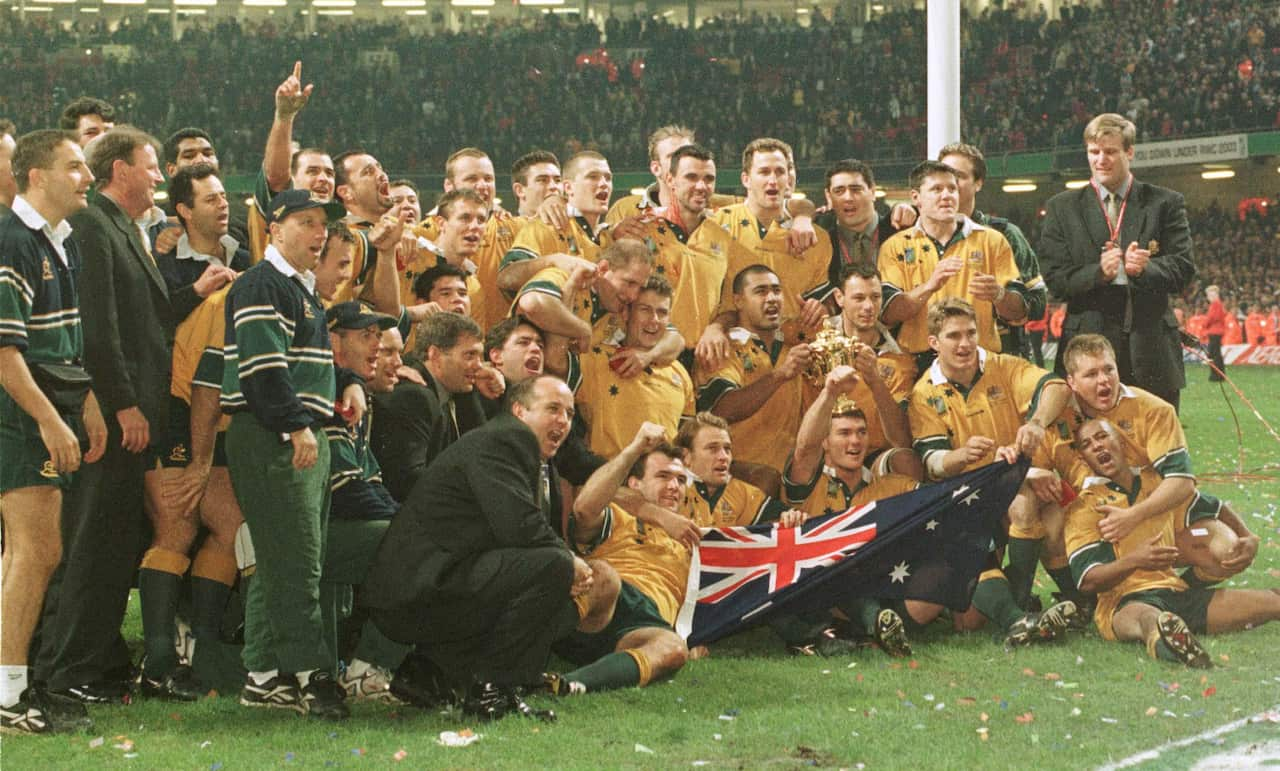
The encounter, and understanding Mohammad’s story, led Dr Best to co-found ICFAR (Injury Clinic for Asylum Seekers and Refugees) more than two years ago, in Sydney’s west where it is more accessible to those who may need support.
It opens every second Wednesday and Dr Best volunteers his time to treat more than 100 patients on the books.
The clinic's expenses are covered either by Medicare or the generosity of refugee and asylum seeker groups.
“I don’t draw an income. It’s a passion that I’m following. I’m at a stage in life where I’ve been very fortunate,” Dr Best said.
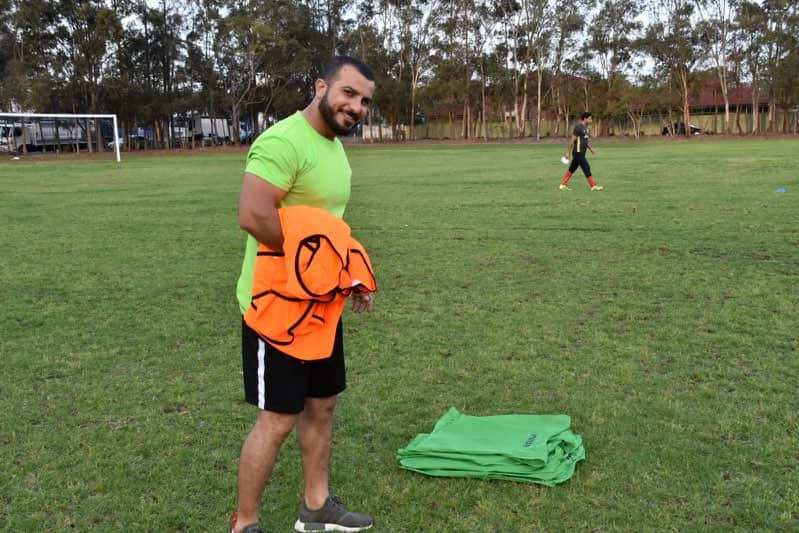
Two registrar doctors also share the workload and say they can't meet the demand.
“I’d love to see more recognition for this sort of clinic … there are so many more patients out there that need this sort of input and help,” said Mohammad Jomaa, a trainee doctor at the clinic.
Pioneering sports medicine treatment
Taking up a few rooms at the Sydney West Sports Medicine facility, many of ICFAR’s patients are notably different to the demographic sports doctors normally see.
“This is a very unique set up,” Dr Jomaa said.
“In sports and exercise medicine more often than not, we are actually seeing completely different socio-economic groups. Very rarely do we see disadvantaged, or refugees coming into clinic.
“We don’t get many athletes here, but we do get real people in our communities who are struggling with chronic physical problems.”
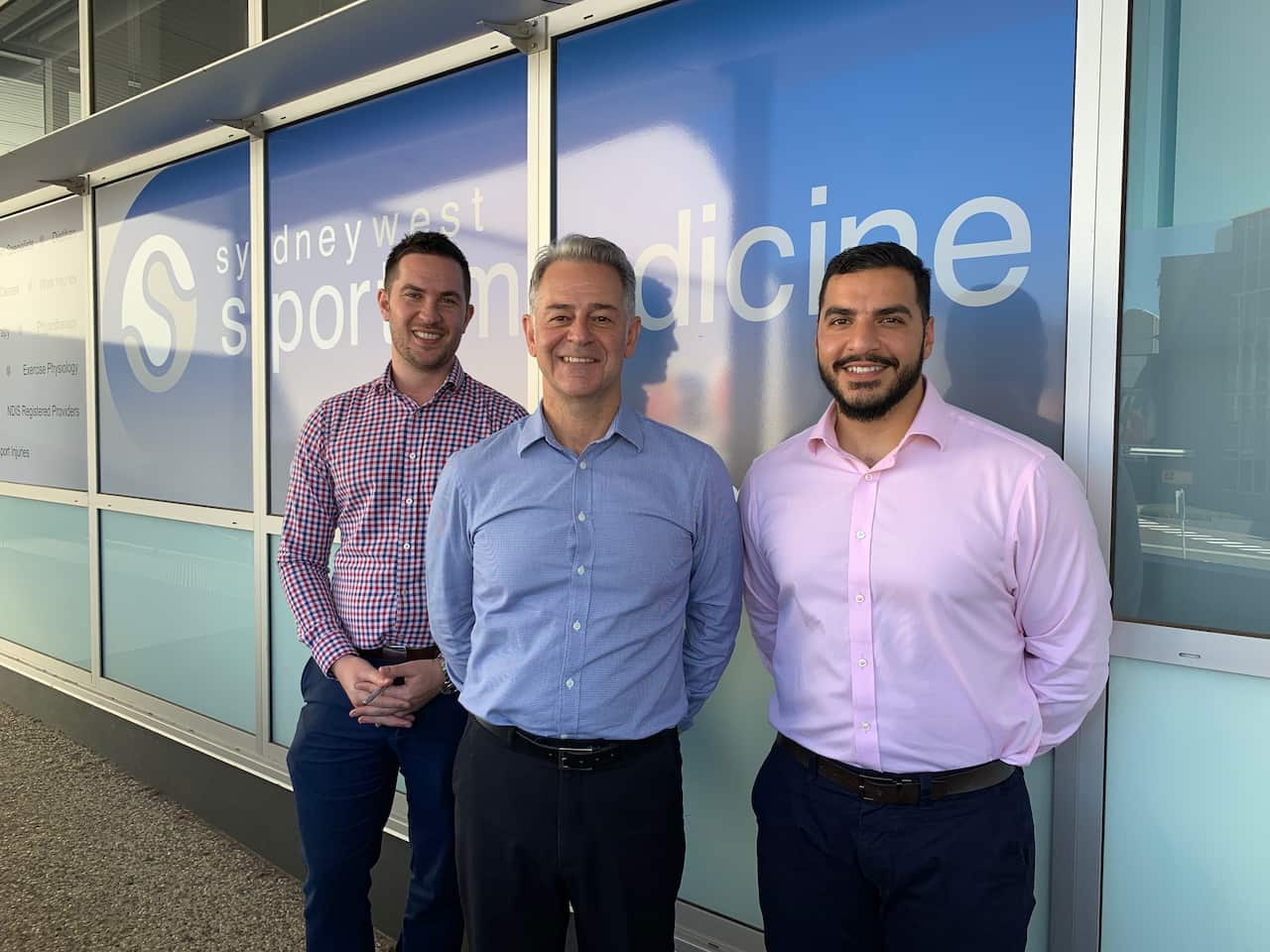
Consultations often take more than an hour, given the challenges which may include language barriers and a patient’s psychological issues, including post-traumatic stress disorder.
“The cultural background of our patients varies quite a lot here," Dr Jomaa said.
"We have refugees coming from all over the world, people who have been in Australia and Sydney for various amounts of time, those who have gone through camps on the way in and have had traumatic experiences either there or coming over.”
For Dr Best, bridging the cultural divide and providing lifestyle education, as well as treatment, is important.
“Bearing in mind that the type of education most people have had coming through is very different from the minimum standards here," he said.
“People don’t really know about the problems of smoking … carbohydrate use and weight gain, and how that creates inflammation contribute to arthritis."
"People are getting aware of that here, but our refugee patients have heard nothing of this.”
Work 'is in me'
Since recovering from his chronic knee injury, Mohammad has been able to work as a painter and return to playing football, volunteering his time at his local club.
“It’s in my body, in my head to work. I used to work in my country, work hard. From 7am to 7pm, 10 to 12 hours a day. So it’s in me,” he said.
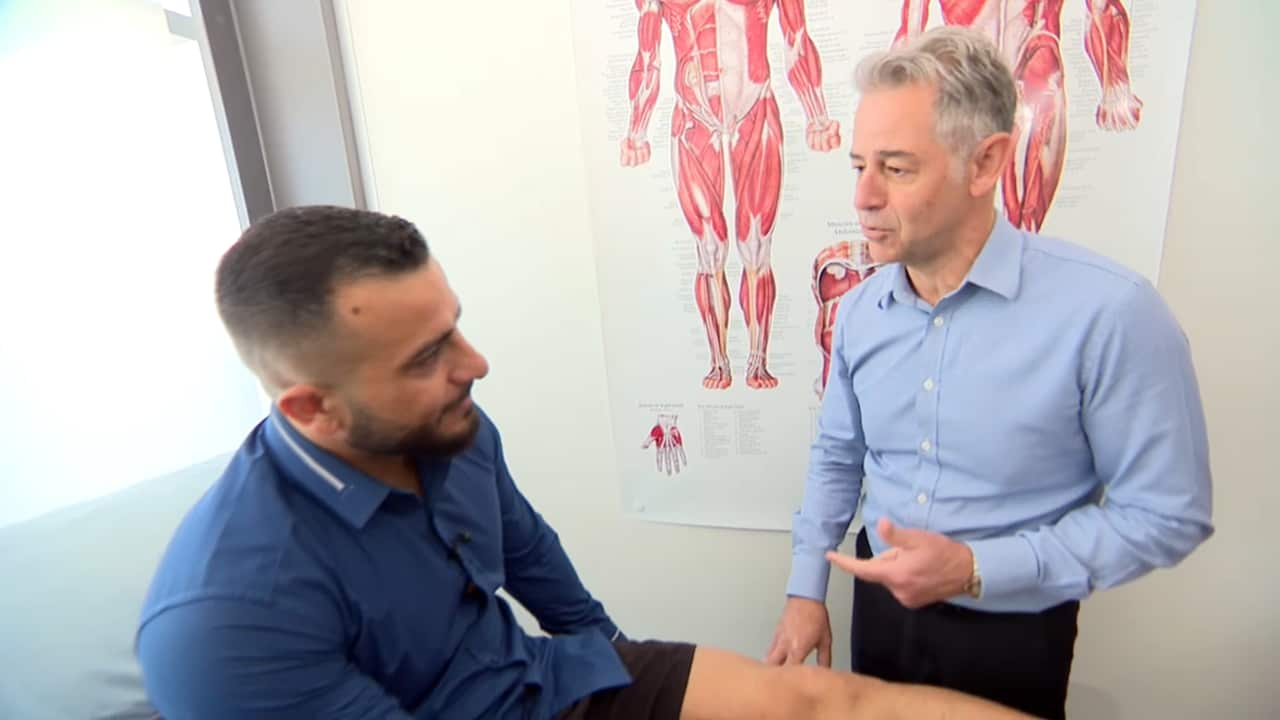
The desire to be a contributing member of Australian society is shared by another patient that has returned to good health under Dr Best’s treatment.
Sadaqad fled persecution in Pakistan, seeking asylum in Australia more than six years ago.
"It was very bad in Pakistan, very bad conditions, not safe," he said.
"I'm in Australia, I'm safe, I'm happy."
The father of five children under 10 developed chronic back pain and struggled to lift objects and even walk for more than five minutes.
It was exacerbated by what most Australians would consider an unhealthy lifestyle.
"In 2015, my two legs felt numbness," he said.
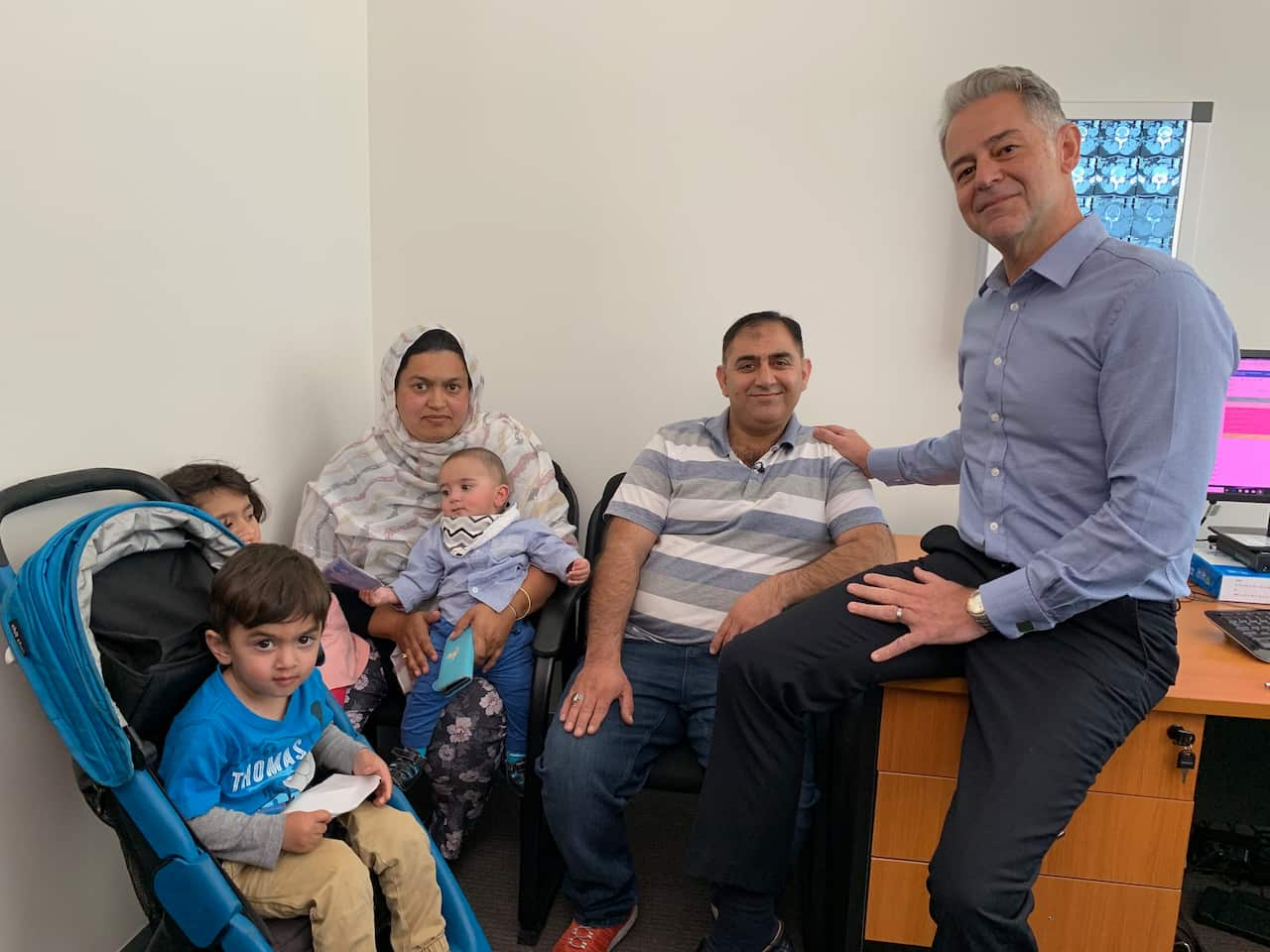
Sadaqad needed surgery and was later referred to Dr Best, who prescribed him exercise and showed him how to improve his diet and quit smoking.
"Dr Best is great ... he really helped me," he said. "I'm happy."
Sadaqad now lives mostly pain-free, and it's a change that has helped him aspire to return to working in healthcare, as he has nursing qualifications from his home country.
“We get highly motivated people that just want their lives to be different and want to start contributing again, and they’re highly motivated to change things for themselves,” ICFAR trainee doctor Leigh Golding said.
“It’s highly rewarding,” he said, sentiments shared by the team.
“[ICFAR] has shown me you can give people a lot of dignity in themselves if you help them work,” Dr Best said.
“We’re talking about people who are trying to recreate a career, study in a language that’s not their first language and try and give back to a country that’s made them feel safe.
"So this is really just one thing we're doing. But using a sports and exercise medicine model just like we're doing with elite athletes, helping people live well and perform well."

